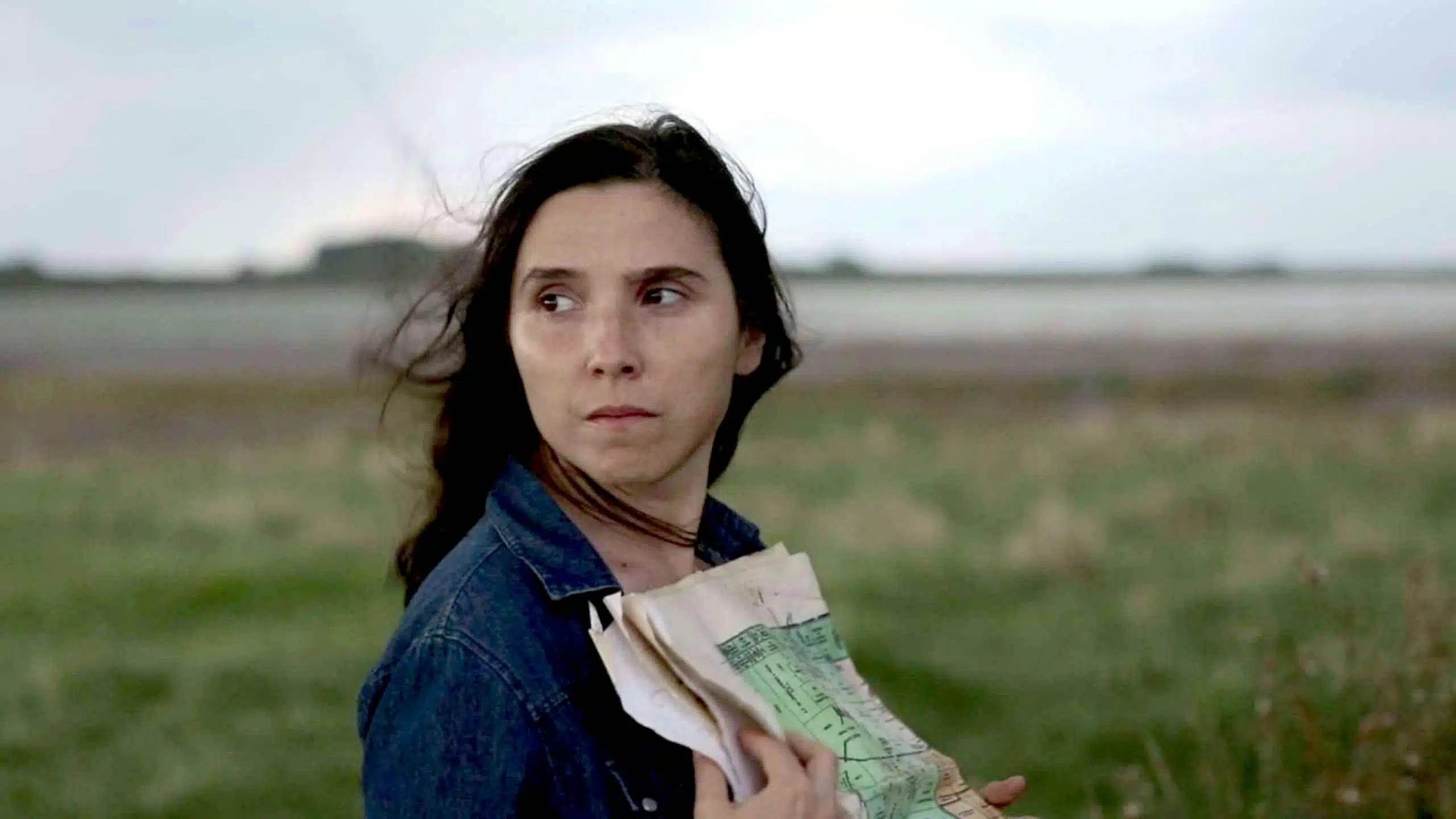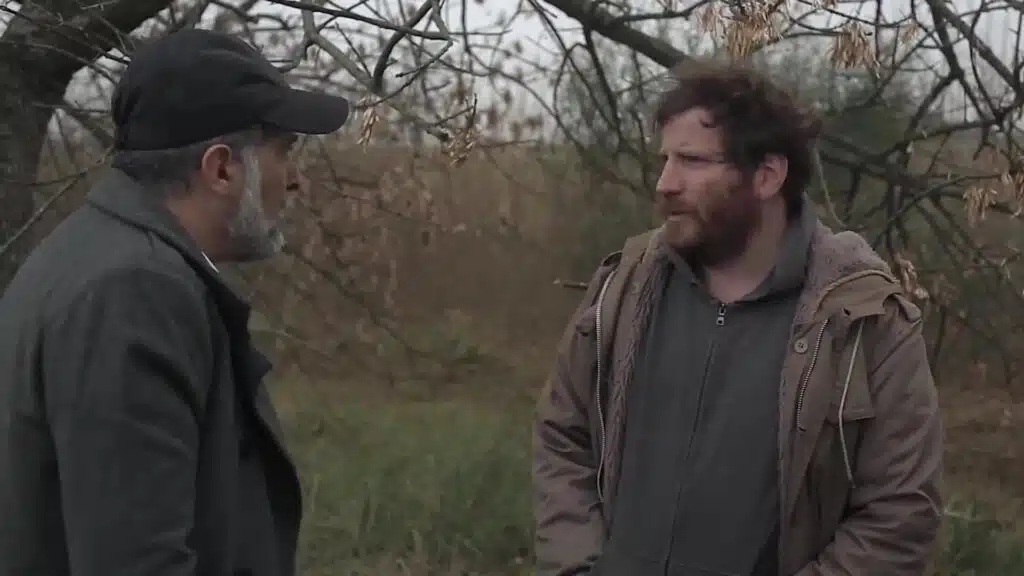Long films are often thought to have something profound to say. I’m not sure Trenque Lauquen does, unless you’re counting what it has to say about the act or art of cinema itself. Philosophically there might not be too much going on here but artistically this is a remarkable film. Cahiers du Cinéma named this as their best film of 2023.
It’s four hours and 22 minutes long, before we go any further, and a detective thriller kind of thing, opening with two men searching for a woman, then flashing back to tell the story of the missing woman and one of the men, all the while alluding even further back, to a love story lost in the mists of time and revealed via diligent digging by Laura (Laura Paredes), the woman the men are searching for.
Fairly straightforward, the story, in many ways, a version of The French Lieutenant’s Woman, you could say. But it’s director Laura Citarella and co-writer Paredes’s spirograph style that is so fascinating. They work around the same material constantly, coming at it from one direction, then another, a small reveal of character here, then a bit more there as the plot dives into the past, then the present, then further back into the distant past, eventually threatening to lift off into the metaphysical world of the ghost story.
The tension comes from the body language of Chicho (Ezequiel Pierri), the younger man accompanying older Rafa (Rafael Spregelburd) as Rafa looks for the missing Laura, his girlfriend, in and around the city of Trenque Lauquen, in the Buenos Aires region of Argentina.
Chicho is a work colleague of Laura, who alternates her day job as a botanist hunting for rare plants with guest spots at the local radio station, where she does a weekly piece on remarkable women of history.
In flashback we watch as Chicho, initially just Laura’s driver, becomes closer to her, and conspiratorially close when she starts telling him about the yellowed, crumbling love letters she’s found while researching her radio pieces. Hidden in the spines of old books, they tell of an emotional, erotically charged illicit affair between lovers Carmen and the married Paolo.
We expect life to imitate art, not least because of the way Chicho looks at the attractive Laura. If it hasn’t, then why, as the two men search for Laura, is Chicho being so cool towards Rafa, who must surely notice that Chicho isn’t being as helpful as he might be.
Poor Rafa. He might have become an old fashioned cuckold, this entitled piece of middle-aged work who is, if he was being honest with himself, a bit old for Laura.
That’s the tension – this threeway, with the exact status of the Chicho/Laura relationship deliberately left hovering.
The film is like foreplay, an extended tease. The potential love plot leaves us hanging, while Citarella leads us up one alley after another. The music cues are particularly telling here, the way they slide from string quartet to synth-y sci-fi, to Chopin, to waltzes, to Miles Davis, constantly changing the emotional mood, guiding us one way and then leaving us there, then guiding us off somewhere else.
There are eight directors of photography on this film, and they’re doing similar things to the score – leading us off in one direction, then switchbacking into something else with their different shooting styles.
Whose story is being told here? It looks like Chicho’s, at first, before Rafa gets his turn, then the mysterious Carmen looks like she’s going to somehow materialise in the present, before it eventually settles on being the story of Laura, where she went when she disappeared and why she went there.
It’s not accidental that Laura’s ringtone is the Elvis Presley song Suspicious Minds. “We’re caught in a trap… I can’t walk out” he croons everytime the phone rings. And it’s not an accident that Laura is fascinated by strong women – Lady Godiva gets a couple of namechecks.
Designed as a follow-up to 2011’s Ostende (which also starred Paredes), the film was released as two separate movies theatrically and that’s a good way to watch it. Part one supplies the setup; part two the payoff – as Laura, in flashback at the radio station, reveals what’s happened to her. Or, looked at another way, it’s a five-/six-part TV show served up in one big dollop.
It becomes Lynchian in the way that his Twin Peaks: Fire Walk with Me movie explained what had happened to his heroine, Laura Palmer, and there is definitely something of Lynch’s air of the dreamy threat in part two.
Performances? Fine. It’s not a performance movie, really, but Paredes is excellent, as are Pierri and Spregelburd (who rises to the challenge of making the irksome Rafa a touch sympathetic). Also Cecilia Rainero, who plays Laura’s boss, and is particularly brilliant in the film’s standout sequence, when Rafa questions her about Laura’s disappearance and she plays with him emotionally in scenes that are bruising and funny at the same time.
But really the wonder of it is the way it switches tone, plot and genre all the time. The only constant is Laura, and she’s gone missing. That, surely, is a metatextual joke.
Trenque Lauquen – Watch it/buy it at Amazon
I am an Amazon affiliate
© Steve Morrissey 2024


